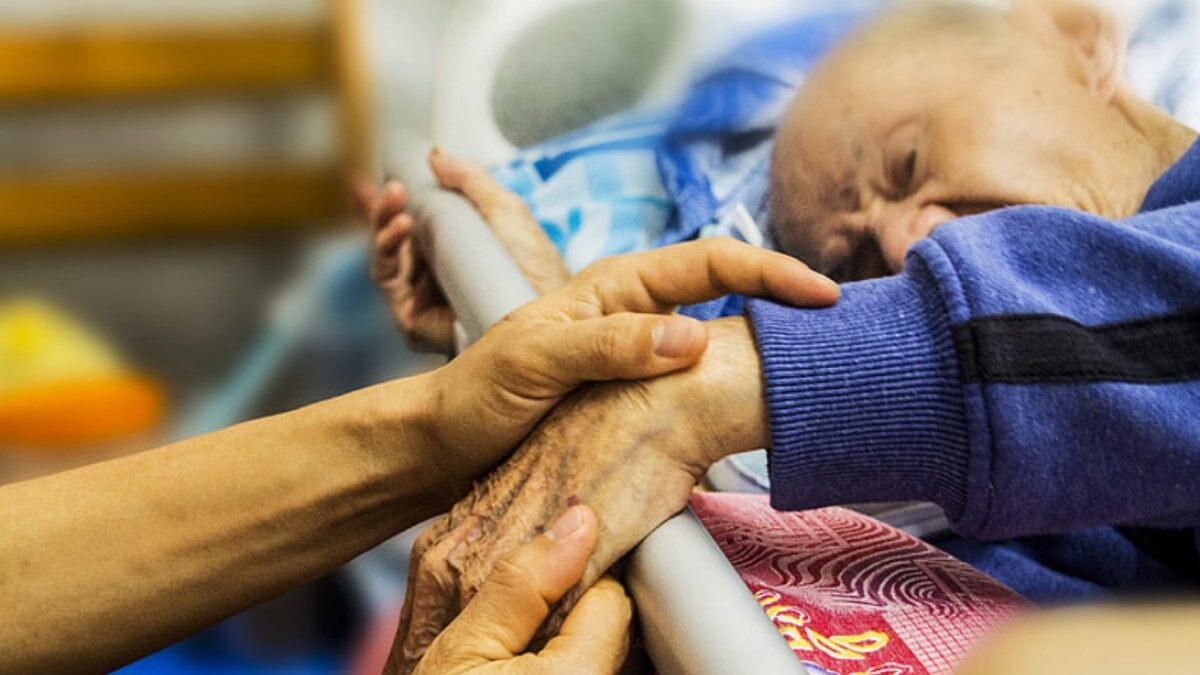
During the final presidential debate, Hillary Clinton defended her support for late-term abortion by referring to women she knew who had made “most heartbreaking, painful decisions” to choose late abortion after receiving difficult prenatal diagnosis. I agree that aborting her child is the most heartbreaking and painful decision for a mother given a prenatal diagnosis. However, as the 44th annual March for Life this week reminds us, there is an alternative.
My son, Thomas, was prenatally diagnosed with a “fatal” chromosomal disorder at 22 weeks in utero. A fetal MRI revealed that Thomas had multiple brain abnormalities, including a dandy walker malformation, a missing corpus callosum, a malformed brainstem, and, perhaps most sad for me, he had no eyes. I was crushed that I would not be able to look into my baby’s eyes. When advised that he would most likely pass in the womb, I was devastated and angrier than I have ever been in my entire life.
To add to this enormous burden, my doctors advised me to abort Thomas, as if he were a cancer that needed to be expelled quickly. But thankfully I had a deep sense that I could not take my son’s life. I knew that even if his life was brief, he had no less right to live it than anyone else.
Friends Help Me Process the Grief
Isaiah’s Promise, a support group for families carrying to term after a severe or fatal prenatal diagnosis, introduced me to mothers who had gone through similar scenarios. With time, support, and grace, my anger and devastation developed into profound love, gratitude, and hope. I recall a moment when I was seven months pregnant, holding my belly, carrying my son, and feeling so deeply grateful for Thomas.
Soon after this, imaging tests revealed Thomas’ prognosis was not as dire as initially believed. Doctors became increasingly optimistic that he would live to term, although unsure of his prognosis once delivered. There was even hope that Thomas might live long-term. With the guidance of our new, dear friends from Isaiah’s Promise, we sought palliative care options and mapped out our birth plan with the head of labor and delivery and a neonatologist at the hospital where we delivered Thomas.
Our son was born, and began his life outside the womb better than anyone anticipated. He scored 8 out of 10 on the Apgar test. He was pink, crying, and hungry, and he looked like his handsome daddy!
In those first months Thomas had many medical issues, but he was a sweet, peaceful baby boy with a strong will to live. He smiled, cooed, played with toys, received hugs and kisses from family and friends, and inspired everyone he met! I remember one nurse at the pediatrician’s office seeking us out to visit with Thomas even though she wasn’t his nurse.
My Child Brought Out the Best of Me
Thomas brought out the best version of me. Whenever I interacted with him, I didn’t see a boy with disabilities but a loving child who inspired everyone around him. Thomas and I shared a special bond. I am beyond grateful that I did not miss the opportunity of experiencing many special moments with him. It helped me so much, and I know I am a better mother to my subsequent children because of his life.

At around seven months old, and after many positive doctors’ appointments, my Thomas suddenly passed away. I can attest firsthand that there is no greater sorrow than losing your child. But I would not trade the many moments of joy and peace for all of the suffering that came from Thomas’ diagnosis and passing. Thomas inspired more people in his seven months than most do in their lifetimes.
Unfortunately, in the aftermath of the last presidential debate, many abortion advocates used Clinton’s comment as a justification for late-term abortion of children like my Thomas. But research shows women who carry to term a baby with a poor prenatal diagnosis, instead of choosing abortion, have a better psychological outcome.
Our son was a reminder to us and our community about the significance of this year’s March for Life theme, the “Power of One.” Thomas left an incredible impression, one that embodied the “importance of love, and the importance of tolerating imperfection in a society where imperfection has increasingly become intolerable…the importance of valuing all human life,” as my husband said at Thomas’s funeral.
Women who receive severe or fatal prenatal diagnoses do not need abortion but support, such as palliative care, perinatal hospice, and programs like Isaiah’s Promise. The beautiful, although often brief, lives of children like Thomas are not meant to be taken before their time with abortion, but to be celebrated.









